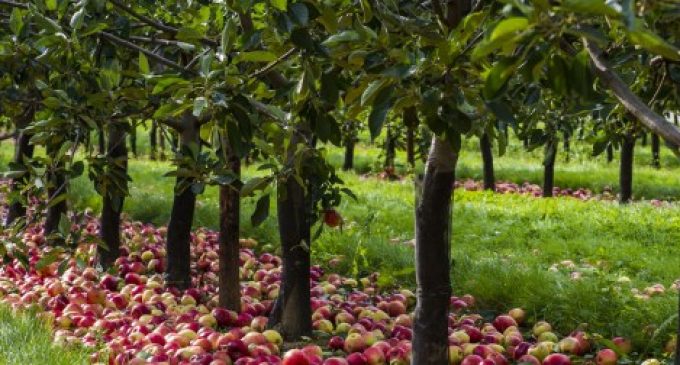Thatchers Cider to Invest £14 Million in New Cider Mill

Thatchers Cider, the family owned English cider producer, is to invest £14 million in a new cider mill at its Myrtle Farm site in Somerset to meet growing demand for its products. The company has applied for planning permission and, if granted, the new mill would come on stream in 2019.
“This investment is about our confidence in the cider market and in the future of world-class cider making here at Myrtle Farm,” says Martin Thatcher, managing director of Thatchers Cider. Our aim has always been to produce fantastic ciders at Thatchers that are best in class on both quality and consistency. Our existing mill has served us well for many years, but we are now looking to increase our capacity to meet growing demand. The new mill will be located at Myrtle Farm, will use less energy and will be sustainably powered by energy generated on site.”
 According to Thatchers Cider, it regularly invests on average £10 million a year into cider production including establishing new orchards and expanding bottling and canning capacity. For example, the company has planted 150,000 new apple trees during the past five years.
According to Thatchers Cider, it regularly invests on average £10 million a year into cider production including establishing new orchards and expanding bottling and canning capacity. For example, the company has planted 150,000 new apple trees during the past five years.
He continues: “There is a lot of talk about fruit cider, but as I see it, there’s a raft of innovation and variety within the apple cider category, and this is where our focus lies. We have a wealth of knowledge of apples, and how different varieties work together to create new and exciting ciders – Thatchers Haze, for example is now the no 2 cloudy cider in the off-trade. Apple is so versatile that through innovation we can meet all taste profiles from dry through to medium and sweet, with this one traditional fruit.”
Thatchers Gold has exhibited 28% volume growth in the off-trade and has become the number two apple cider in can.
Martin Thatcher elaborates: “Consumers are moving from bottle to can, and as the market continues to premiumise, Gold will continue to seal its position as the fastest growing can cider. As fruit continues to bring more people into the category, we predict that these entrants will turn to apple variants as they become fatigued with flavour. Retailers consistently want a fewer number of quality brands.”

































